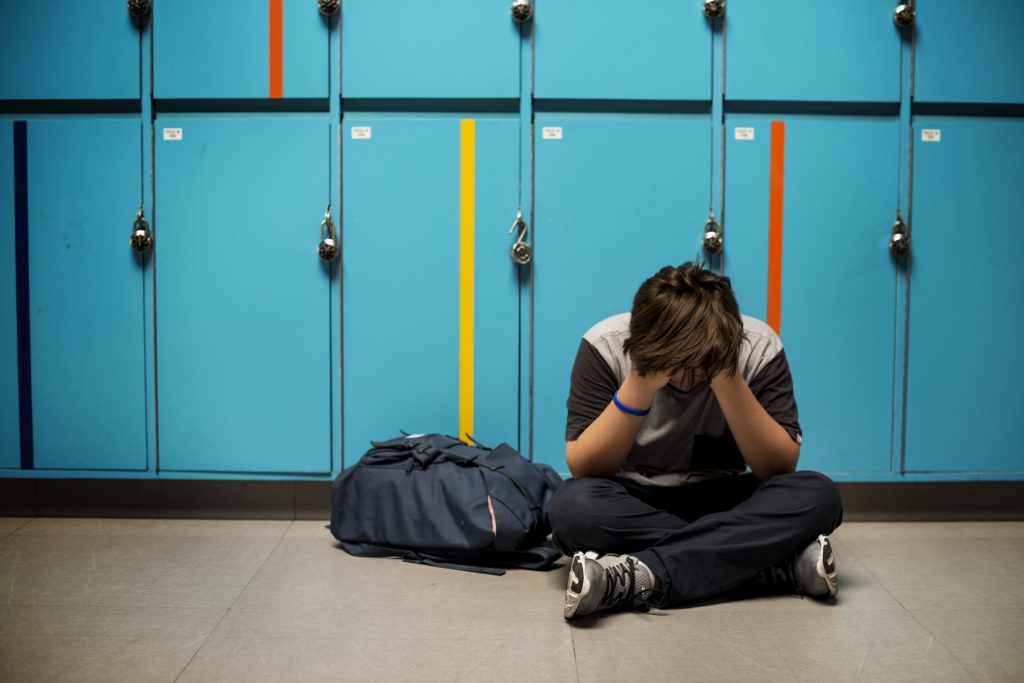The summer is coming to an end, and although some kids are thrilled with the prospect of being back on campus, some students and families inevitably worry about bullying. If a child has experienced bullying previously, this may be a real stress point for a family and a child. We looked at some popular advice typically given by family-friendly martial arts instructors. Here, we share some valuable things to consider as you prepare for the upcoming school year.
Since the effects of bullying go well beyond school years, it is critical to provide your child with support and guidance as they explore their independence while at school. Also, as parents, we are ultimately responsible for being role models for using self-control in comments, judgment, and downright childlike behavior. Any child, no matter how old, watches the actions of their parents. Bad behavior is as easy to emulate as good behavior, so take some time to self-reflect and ensure your child\’s behavior is not stemming from what they see in you.
Talking About Bullying with Your Children
One of the biggest things is open communication and encouraging children to say something. Since bullying will never go away completely, talking about it, why it is wrong, and what to do if it happens should be a conversation from a very young age. Ignoring signs of bullying is a significant part of the growing problem. As suicide rates rise, we must take notice and do what we can to help the younger generations navigate a more aggressive culture. More than 64% of children who experience some form of bullying never say anything. Many students are bullied on school buses and never report it! If your child talks with you, please tell the school administration. If nothing is said, there is no way to fully understand the depth of the bullying and no way to address it. Unfortunately, it is usually a physical injury, threats, or vandalism that has to take place for people to call it bullying. Let’s make an effort to change this for the future.
It has often been taught that kids can handle situations, they should toughen up, or that ignoring it will make it go away, but that is not true. Name-calling, gossip, spreading rumors, and being excluded are rarely reported. These are not commonly reported as bullying because it has been accepted that kids will be kids. However, this is not acceptable behavior and should not be disregarded as some “coming of age” milestone. Adults should encourage students to speak up for themselves and others being bullied.
Cyberbullying is NOT Ok
The internet is a resource for most students, not to mention using social media apps to stay connected. Although this technology has allowed people to stay connected in new and amazing ways, it is easy to experience online bullying and can be anonymous. Cyberbullies make people feel embarrassed, unliked, left out, and ashamed, among other things. Cyberbullying is challenging to identify unless a child tells someone since there is no human contact. However, cyberbullying is NOT ok and, in many cases, is illegal. Any online communication that is bullying should be reported to a trusted adult. Please encourage your child to share anything they see or read online that makes them uncomfortable. There are tools to use against cyber bullies. The best advice to give our child is not to respond. Cyberbullies feed on reactions, so do not give them one. Record evidence, including screenshots, if there is suspicion of bullying. It is also best to block people who are bullying your child on social media, gaming accounts, and cellular phones. If it does not stop, it may be best to create new accounts and get a fresh start. Contact the local law enforcement, and most have a cyber department that can help determine if the activity is illegal.
Signs of Bullying to Watch Out For
Identifying possible effects of bullying is something to keep an eye out for as students begin the school year. Some signs of bullying may be crying and inconsolable after school or physical injuries that can’t be explained. Other signs may be a sudden drop in grades, acting sick or not wanting to go to school, not sleeping or having nightmares, drastic changes in eating, loss of friends, avoidance of social interactions, and overall lower self-esteem.
Again, with cyberbullying, these signs are not as easy to identify. Keep talking with your children, no matter what age. Remind them that you care, want to help, and are looking out for them. Together, bullying has less of a chance. As adults, be aware, take note, ask questions, and empower your child to speak up. Collectively we can help the youth diminish the power of bullying and change the future of other students by creating a more cohesive and transparent front.
Martial arts are an incredible way to build confidence in children of all ages. Martial arts classes naturally involve engaging in healthy and respectful relationships among peers and developing the strength to handle different physical and mental situations. Find a family-friendly dojo and take the time to find one with a vision that matches your values. Learning self-defense and other skills have helped many school-aged children overcome bullying challenges!

